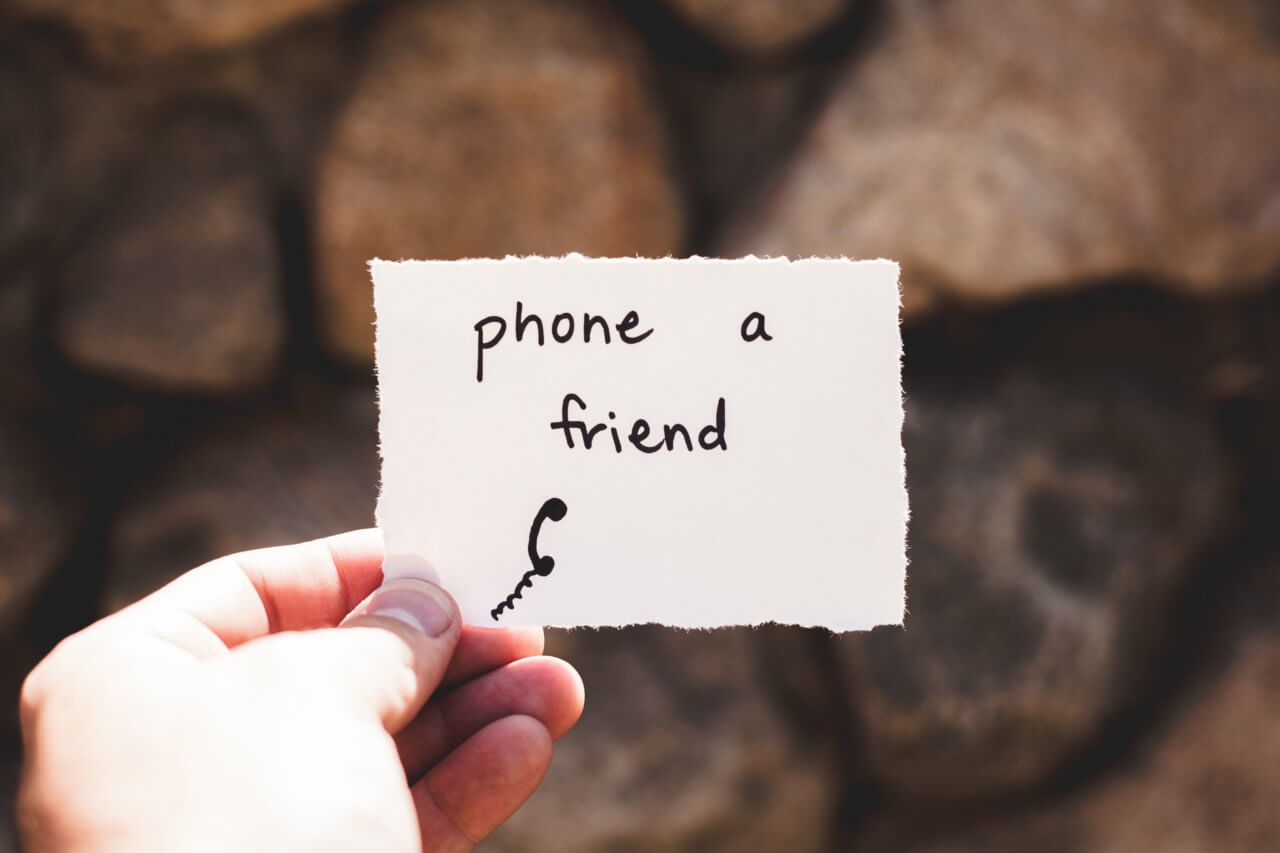Coronavirus took the world for a ride the past two and a half years. And while the pandemic’s end hasn’t officially been declared, things seem to be going back to normal—at least in the U.S.
But there is another potential situation coming up in the next 6 months or so. Concerns over a “too hot” economy have many economists, financial CEOs, and personal finance bloggers predicting a recession. Some say it’ll be bad, some say it won’t.
Jobs growth is still solid, but there are reports of layoffs, especially in the tech sector. And while it’s impossible to predict the future or if more layoffs are coming, it never hurts to prepare for an outcome where you lose your job.
No matter what the reason for a layoff is, I want to encourage you that you are not powerless in this situation. Here are 7 things that you should do if you’ve lost your job for any reason.

1. Don’t Panic
The first thing you should do right after losing your job is actually a don’t.
That’s right. Don’t panic.
You will bounce back from this. You will be in a better place after everything is all said and done. This is not the end for you.
While it’s terrible to lose your job anytime, things can get a little dicey when you’re filled with anxiety about what the future holds.
Panicking will only make everything worse. It can lead to depression (or worse) and fill you with such dread as to where you don’t even want to get up and continue moving forward.
Tell yourself in the mirror every day that you will move past your job loss. You will do what you have to do to provide for you and your family. You will be even farther ahead when you get a new job.
After not panicking, you will actually see that there are a number of things that you can do to get by. The rest of this article will give you clear direction on what to do to fill yourself with hope.

2. Reach Out to Someone Who can Encourage You
The next thing you want to do is reach out to someone.
Find a friend who will encourage you through this. Reach out to your Pastor or someone at church. Ask your family to be there for you.
The craziness, the uncertainty, and the constant publishing of bad news in the media are all things you don’t want to deal with alone.
Add unemployment to that and it can be very easy to get depressed and feel like there is no hope. Finding someone that will help you through this difficult time is key to getting through it.
This person should be someone who you can trust not to judge you but also won’t let you sit and sulk for too long. This person will meet you right where you’re at with the discouragement you’re dealing with and help pull you out.
For me during the COVID-19 crisis, I was in constant contact with my best friend (which isn’t actually a change).
We sometimes complain together, always encourage each other, ask each other for prayer, and try and send each other things that can help get our minds off the current state of things.
It’s been a huge help in all the difficult times in my life.
Reach out to someone you know who cares for you and can you help you through this difficult time.
3. File for Unemployment Benefits
Now that you are not panicking and have a support system, it’s time to start replacing your lost income.
Immediately after receiving your notice that you’re getting laid off, contact your State’s unemployment office to sign up for unemployment benefits.
The easiest way to do this is to do a google search for “(your State) Unemployment” and it should be one of the top results.
Unemployment benefits are the main way that you can replace our income—and do it quickly.
Most states have a 7-day waiting period from when you lose your job until you can collect benefits. This was lifted for the COVID-19 crisis so you can get your money faster, but it’ll be reinstated in the future.
Many states offer up to 6 months of unemployment benefits during “normal” times up to a certain percentage of your income. So look up how long you’ll get in your state for planning purposes.
Filing for unemployment benefits is a necessary step in getting some income and security during a job loss for any reason.
If you’ve been laid off or furloughed, reach out to your State’s unemployment office to get your benefits.

4. Prioritize Your Needs
When I help people budget, one of the first steps I have them do is prioritize the things that they need.
In a normal setting, it’s important to make sure your needs are taken care of and that you are spending what you should be spending on what you value.
In a crisis situation like a loss of income, it’s even more important. Here are some things for you to do
First, make sure food and water, shelter, utilities, and (to a lesser extent) transportation are all taken care of. Anything that you absolutely need to survive should be your top priority for spending your money.
Your needs should be non-negotiable during this because you have to stay alive. There are things you can do to save money on groceries and utilities to help during this time as well.
Second, re-examine your spending on your values. While it is important to still spend money on your value (if any of them are in the house), this is an unprecedented time.
If you need to, try and cut some spending on your values and keep the ones that are REALLY important to you. Remember, this is just a temporary situation so you’re not cutting out the things you really like permanently.
Your needs—essentially the stuff that is going to keep you alive—are your most important expenses right now. Do what you can to fulfill them during this difficult time.

5. Call Your Creditors
If you’re at a sudden loss of income, it’s important that your creditors know about it right away
Any type of debt that you have—credit card, student loan, mortgage, etc.—should be looked at. Call the company that holds the debt and see how they can work with you.
Credit card companies can lower interest rates. Student loan creditors may be able to defer payments. Mortgage lenders may be able to adjust your mortgage to lower your payment.
Ramit Sethi has some great talk tracks in his book, I Will Teach You to Be Rich. It’s also a good finance book to read.
The point is, the earlier you call your creditors the more options you may have and that will only help your situation if you find yourself without a job.
6. Explore Health Insurance Options
If you lose your job, you may be losing your healthcare as well. That can be like a second punch in the gut after the first one of losing your income.
Luckily, there are some options that you can take to make sure you get the coverage you need.
- Ask your employer to keep you on their insurance. This may be an option your employer is considering already. It also may be something that you can negotiate. This is also the simplest thing you can do if you’re furloughed (i.e. will be rehired once any crisis is over). See if you can stay on your employer’s health insurance plan as long as you continue to pay your portion.
- Go on a spouse’s insurance plan. If you are married and your partner’s work offers health insurance, the next best thing is to go on theirs. Costs and coverage may be comparable to what yours is.
- Head to an Affordable Care Act exchange. Each State operates its own marketplace for Obamacare (also known as the Affordable Care Act). Look up your State’s marketplace and explore rates
- Look into COBRA. If you really want to keep the healthcare you had at your job, you can look into COBRA coverage. Essentially, you take on the entire cost of your employer-sponsored healthcare coverage. This can get pretty expensive so may not be the best bet. However, look into it if you need to.
Keeping your health insurance is critical in most cases so make sure you get some sort of coverage to help you out.
7. Remind Yourself That This Is Only Temporary
A lot of things are changing and changing rapidly right now. You’re doing a lot of work to make sure that you are taken care of during a job loss.
You’ve applied for unemployment benefits, made sure you’re staying sane and positive, readjusted your budget, made sure you have health insurance, and you have someone there to encourage you.
All that can be extremely nerve-wracking and can get you down in and of itself.
This is where it’s important to remind yourself that this is only temporary.
What you’re going through right now is not permanent. You will be back on your feet with a new, better job—or the same one if you were furloughed.
In the meantime, the steps that you’ve taken will give you security. I also believe that there is a God in Heaven who is taking care of you as well if you choose to receive that help.
What I like to do is remind myself that any bad situation I’m in is only temporary. There is always a light at the end of the tunnel, even if you can’t see it.
So while you’re telling yourself every morning that you will move past this job loss, remind yourself that your current situation is only temporary.
Don’t forget to believe it, because it’s true!

What can you do if you’re NOT affected by a job loss during tough times?
The truth is, we don’t know how long any economic downturn is going to go on for now or in the future. We don’t know who all will be affected. That’s why it’s important to hold on to certainties in uncertain times.
If you’re someone who is not affected by a job loss, consider giving to those who are. If you’re in a position where you’re doing ok financially, consider giving to others who are in need.
Take a look at your finances, make sure you’re good to go, and then I encourage you to help others who need the money a lot more than you do.
Conclusion
Tough times come far too often it seems but that doesn’t mean we should lose hope.
These seven steps are things that you can do to give yourself some hope, some security, and some much-needed income during a job loss.
You can also check on others you know who have had a job loss. Those who haven’t lost a job may be able to help meet a need of someone who has. The only way to know is to reach out and offer assistance.
For those that have lost income, know that this isn’t it. Things will get better and you will be back on your feet before you know it.
Keep your chin up.


















